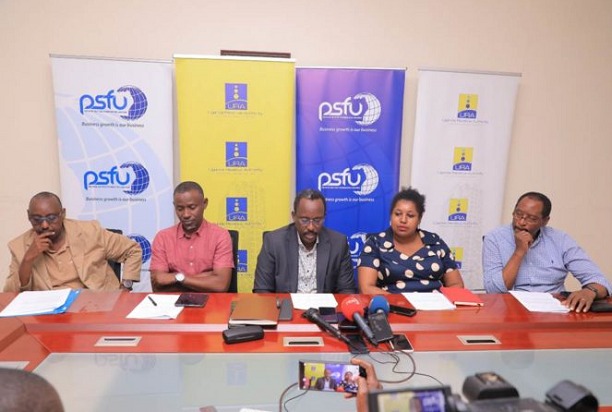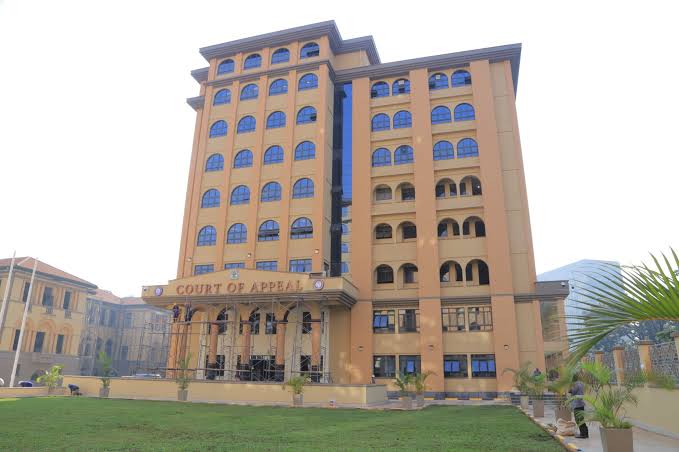Uganda ranks third in EAC in domestic revenue collection
JOEL OGWANG
A raft of measures that the taxman, the Uganda Revenue Authority (URA) has undertaken to raise domestic revenue as a percentage of GDP over the years continues to bear sweet fruits, elevating the country’s tax to GDP ratio.
Keep Reading
- > Politicians hiring goons to attack traders who refuse to participate - police
- > URA Urged to Address 15% Withholding Tax on Members' Dividends
- > URA to open an operational office in the Kikuubo business area aimed at educating traders about EFRIS services
- > Politicians planning to hijack Kampala traders’ protest on e-receipts- police
Whereas URA was charged with collecting a net revenue target of sh16.4 trillion, the financial year closed with sh16.6 trillion generated, registering a growth rate of 14.95% or, in real terms, an addition of sh2.16 trillion to the treasury in comparison to the 2017/18, according to Doris Akol, the URA Commissioner General.
"The performance was 101.58% which, in real terms, meant a surplus of sh258.8b above the target and the highest target that URA has registered over its 28-year period" she told reporters at the annual press briefing recently.
UGANDA AND EAC
Uganda’s average net revenue collections growth over the past 5-year period was at 15.72%.
"The tax to GDP ratio has increased from 12.84% in the 2014/15 to 15.11% in the 2018/19 above the National Development Plan (NDP 2) target of 14.90%," says Akol.
This growth elevated Uganda’s tax to GDP ratio, with URA currently 3rd in the EAC bloc. In the 2018/19, we recorded a tax to GDP ratio of 15.1%. Kenya, at 16.5% generates more revenue domestically, followed by Rwanda (15.2%), Uganda (15.1%), Tanzania (13.2%) and Burundi (13.4%), says Akol.
"By the end of this 2019/20FY, we expect to be at 16% but you can’t compare us too much with others because their economies are not the same as ours. We should compare apples and apples and not apples and oranges," she notes.
‘This thing about tax to GDP ratio is not about races that one is winning and another is not; it is how your economy is performing in terms of your tax revenue and not in comparison to another economy.’ Kenya’s GDP is estimated at $60b compared to Uganda’s $27b.
WHY TAX REVENUE INCREASED
Uganda’s next collections from domestic taxes hit sh9.7 trillion in the 2018/19FY, registering a 102.80% growth and, in real terms, sh265.59b collection above target.
Thus, a 17.68% growth rate was realized compared to 2017/18.
The major tax heads that recorded gross surpluses during the year, says Akol, were direct taxes including corporation tax (Shs 331.37b attributed to transport and communication sub-sector, storage as well as financial intermediaries and PAYE (Shs148.60b) attributed to the public sector that performed at 127.96% of target.
Net international trade collections during the 2018/19 were Shs 6.875b, registering a 100% performance and sh0.34b above target.
A growth rate of 10.85% was realised compared to 2017/18, with major tax heads being import duty that performed at 100.71% of the target and VAT on imports performing at 102.62%.
There was also increase in tax yield in major import items during the 2018/19FY compared to 2017/18.
Among others, worn clothing contributed sh28.36b, cigarettes (sh29.27b) motor vehicles (sh28.36b) and foot wear (sh27b), enhancing international trade tax revenue collections, leading to a surplus of sh8.91b.
During the 2018/19 budget speech, new tax policy measures were proposed for implementation to facilitate the achievement of identified result areas, including income tax, local excise duty, VAT, customs- Non-tax revenue (NTR), customs, CET adjustments and excise-customs.
A daily levy of sh200 on Over the Top (OTT) services on social media access and 1% levy on mobile money transactions were adopted.
Mobile money performed at 136.72%. URA expected to collect sh115b from mobile money but collected Shs 157.23b. Whereas the net estimated revenue from approved measures was Sh779.5b, over Sh1 trillion was collected, registering a performance of 140.50%.
"Because of the above initiatives, Ugandans have voluntarily registered for taxes and a total of 166, 663 new taxpayers have been added on to the tax register," says Akol.
Tax revenue will be 18 trillion as well as revenues from other government Departments, Ministries and Agencies (MDAs). ‘Of the target, customs is supposed to collect Shs7,
66 trillion and domestic taxes will collect sh13, 153 trillion but this includes NTRs and AIA,’ says Akol.
The commissioner in-charge of customs who was recently elected to chair the World Customs Organisation (WCO), Dickson Kateshumbwa noted a growth in imports volume by 28.54% in the 2018/19 compared to 16.30% in the 2017/18.



















